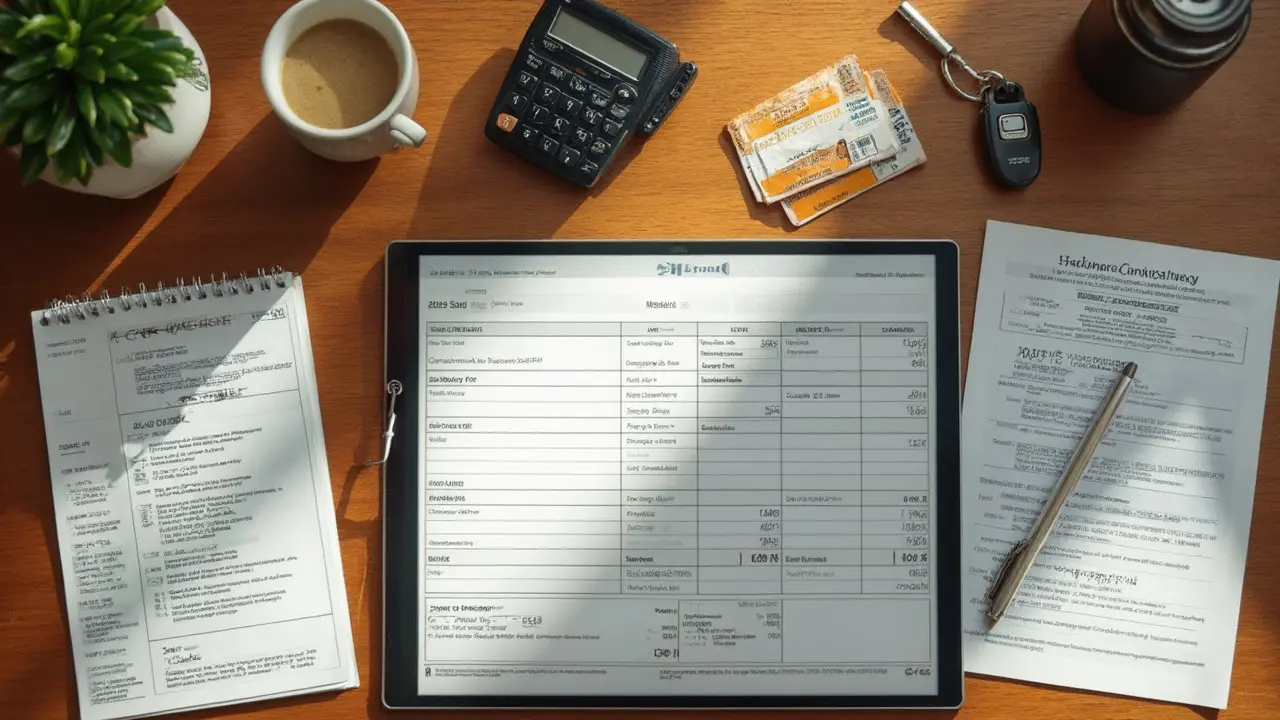Travel gets lonely fast. Long flights, empty dinners, a city that looks better shared. That’s where a “girlfriend experience” companion can change the whole vibe-easy conversation, natural chemistry, someone who slots into your plans without drama. This guide shows you how to make that work in real life: realistic costs, safe booking, legal basics, and the etiquette that keeps it relaxed instead of risky.
TL;DR
- What it is: GFE focuses on warm, natural companionship-think dates, sightseeing, conversation-without rushing or performance vibes.
- Best for travel: Social settings, business trips, city breaks, multi-day tours where easy chemistry matters.
- Costs (2025): Major-city day rates often run £1,500-£3,000 / $4,000-$8,000, plus travel and hotel; deposits (20-50%) are standard.
- Book safely: Vet profiles, check independent reviews, use proper screening, confirm terms in writing, and discuss boundaries before you fly.
- Legal & safety: Laws vary widely by country; what’s ok in one place can be illegal in the next. Keep consent, privacy, and health precautions front and center.
What a GFE travel companion really brings
A good travel companion doesn’t just share your table; they raise the whole trip-smooth small talk with your clients, spontaneous laughter over a dodgy wine list, and a steady presence when plans change. That’s the heart of GFE. The focus is on connection and comfort, not ticking boxes.
Here’s the simplest way to think about it: chemistry, compatibility, and pacing. GFE companions tend to excel at blending in-smart-casual at a gallery opening, lively in a street market, respectful during a work dinner. They read the room. They keep the energy easy.
Where does this shine?
- Business trips: Daytime solo, evening dinners together. Someone who can talk travel, tech, or art without stealing the spotlight.
- City breaks: Two or three days discovering neighborhoods, coffee spots, and tucked-away cocktail bars.
- Multi-city tours: A steady travel rhythm-early trains, museum passes, booking changes-handled with grace.
How is GFE different from other styles? It’s less about spectacle, more about presence. You’re not chasing a highlight reel. You’re building a natural flow for the trip-inside jokes by day three, effortless photos by day five (if you’ve agreed photos are ok).
Is it right for you?
- Good fit: You value conversation, respect boundaries, and want a companion who can navigate restaurants, museums, and meetings with equal ease.
- Not ideal: You want fast, transactional, or club-heavy nights. That’s a different brief entirely.
Rule of thumb: choose for compatibility first, schedule second, price third. If you swap that order, you risk paying for friction. Read profiles carefully-interests, travel experience, languages, comfort zones. A companion who loves design, food, or history will tune into your plans and contribute ideas in the moment.
One more angle people miss: pace. The best trips breathe. GFE thrives with unhurried time. Leave space between commitments, build in coffee stops, and expect travel delays. A relaxed schedule helps chemistry bloom instead of burn out.

How to choose, book, and plan your trip
Think in three phases: shortlist, secure, structure.
- Shortlist
Define your brief in one paragraph: dates, cities, events, vibe (polished, artsy, outdoorsy), and any must-haves (languages, dietary, black-tie). Search for companions with recent photos, clear touring calendars, and travel references. Prioritize those who mention real travel experience. - Vet
Read third-party reviews from credible boards or known agencies with compliance checks. Look for consistency across platforms. Red flags: no reviews anywhere, pressure for immediate full payment, evasive answers on screening, or mismatched photos. - Introduce yourself
Send a clear, concise enquiry: who you are, dates, cities, length (e.g., 2 days/1 night), and the general itinerary. Keep it respectful; no explicit language. Offer references if asked. Professional tone gets better replies. - Screening & call
Expect screening: ID verification, work references, or an agency check. Set a short voice/video call to confirm rapport and clarify expectations: public events, shared room or separate rooms, downtime preferences, photo policy, boundaries. Use a secure app like Signal or an agency’s booking line. - Confirm terms
Get a written confirmation (email or invoice) with dates, hours, day/overnight rules, breaks, deposit amount, cancellation policy, expenses, and privacy terms. Pay the deposit only after you have written terms. - Plan the flow
Share the skeleton itinerary: flight numbers, hotel, dinner bookings, tickets. Build in buffer time around travel days. Decide on dress codes for each segment. Clarify if you’ll want time apart daily (healthy) and when. - Pack & prep
Pack with a plan: smart-casual outfits, one formal option, comfy walking shoes, and weather layers. Bring a small gift if that feels right (local chocolates, a paperback). Sort travel insurance, roaming, and payments in advance.
Deposits and payments are normal. Expect 20-50% to secure multi-day bookings, with the balance due at the start. Agencies may offer card processing; independents often prefer bank transfer or cash. Crypto is rare and can make refunds tricky; avoid unless both of you are comfortable and the terms are crystal clear.
| Region (2025) | Hourly (major cities) | Day rate (8-12h) | Overnight (12-16h) | 24h multi-day | Typical deposit | Cancellation (common) |
|---|---|---|---|---|---|---|
| UK (London, Manchester) | £300-£600 | £1,500-£3,000 | £2,000-£4,000 | £3,000-£6,000 + expenses | 20-40% | 50-100% inside 48-72h |
| US (NYC, LA, Miami) | $600-$1,200 | $4,000-$8,000 | $5,000-$10,000 | $6,000-$12,000 + expenses | 30-50% | 50-100% inside 72h |
| EU (Paris, Berlin, Barcelona) | €400-€800 | €2,000-€4,000 | €2,500-€5,000 | €4,000-€8,000 + expenses | 20-40% | 50-100% inside 48-72h |
| Gulf & Asia hubs (Dubai, Singapore) | Highly variable | Agency-specific | Agency-specific | Agency-specific, if legal | 50%+ | Strict; legal risks |
These are ballpark figures based on 2025 city norms and public rate cards. Reality varies with experience, demand, and the specifics of your trip. Travel days, first-class flights, and last-minute changes often add premiums. Always confirm in writing.
Agency vs independent?
- Agency: Streamlined screening, card payments, backup options if flights cancel. Slightly higher rates. Policies are firm.
- Independent: Direct communication and flexible styling. You handle more vetting. Payment options vary.
Pre-trip checklist you can copy:
- Written confirmation with dates, hours, breaks, deposit, cancellation, and expense terms.
- Two emergency plans: flight delays and missed connections. Share live arrival info.
- Hotel booking with two guests on the reservation (where lawful). No surprises at check-in.
- Boundaries agreed: photography, social media, public displays, alcohol limits, downtime.
- Health kit packed: condoms, sanitizer, basic meds, and any prescriptions.
- Money sorted: deposit receipt, tip plan (if applicable), and a buffer for last-minute changes.
- Communications: Signal/WhatsApp set, roaming enabled, and a simple meetup plan.
During the trip, keep the rhythm humane. Aim for 2-3 shared anchors per day (breakfast, one activity, dinner) with breathing space in between. Invite your companion’s input-locals-only café, a hidden viewpoint, or a smarter route to beat queues. That collaboration is half the magic.

Legal, safety, and etiquette essentials
Laws differ across borders, and they change. What’s legal in one city can be criminalized one train stop away. Do not assume. Do your homework, and keep everything between consenting adults.
Quick legal map (not legal advice):
- UK: In England and Wales, paying for consensual adult services is legal. Running a brothel, curb-crawling, and certain forms of solicitation are not. Scotland has similar limits. In Northern Ireland, paying for sex is illegal.
- US: Illegal in most states except limited areas of Nevada. Escorting for “time only” isn’t a shield if intent is inferred. Laws are enforced; stings happen.
- Germany, Netherlands, Switzerland: Regulated frameworks exist; compliance matters (licenses, registration). France and the Nordics criminalize buyers.
- Gulf States & Singapore: Strict prohibitions with serious penalties. Even public affection can cause issues. Many travelers choose companionship-only dinners in these regions or skip entirely.
- Asia-Pacific (mixed): Local rules vary widely in Japan, Thailand, and Australia. Check current guidance before you plan.
Before you book, check your government’s travel advice and local laws for each stop. As the UK’s travel guidance puts it, you’re expected to know the rules where you are. And don’t forget hotels: some require the second guest’s name on the booking; some won’t allow unregistered visitors at night.
“Condoms, when used correctly and consistently, are highly effective in preventing HIV and other sexually transmitted infections.” - World Health Organization
Consent and boundaries are non-negotiable. Consent should be clear, enthusiastic, and ongoing. If anyone feels off-tired, unwell, not in the mood-you adapt. That care keeps the rest of the trip warm and easy.
Health & safety kit:
- Bring quality condoms and know where to get more. Don’t assume hotel gift shops will stock them.
- Pack any prescription meds in original packaging. Keep a photo of your scripts.
- Alcohol: set a shared limit. Sloppy nights wreck good trips.
- Transport: use licensed taxis or reputable ride-hail apps. Share routes in the app.
Privacy and discretion:
- No candid photos without permission. If photos are ok, agree on framing (no faces, no geotags).
- Social media blackouts are normal. Many companions prefer zero posts during and after.
- Use first names only in public. Keep personal info private unless both want to share.
Money and logistics etiquette:
- Have the balance ready at the agreed time. No chasing, no awkward waits.
- Cover all travel expenses you requested-flights, hotel, meals together, event tickets, rides. Per diem if you expect long days.
- Meals: order like you would with a friend. Generous, not flashy. Tip as per local norms.
- End-of-trip: a kind note and a review (if mutually agreed) help future bookings.
Red flags-walk away if you see:
- Pressure for full payment via risky methods before any screening or written terms.
- Refusal to discuss boundaries or health practices.
- Mismatch between photos and reality that can’t be explained (outdated content happens; evasiveness is different).
- Talk of ignoring local laws or hotel rules. That risk lands on you both.
If your plans change, communicate early. Most pros have fair cancellation windows (48-72 hours for partial refunds; inside that, expect forfeits). If a companion has to cancel for a real emergency, reputable agencies help rebook or refund the deposit per their policy.
Mini-FAQ
What exactly is GFE?
It’s a companionship style centred on warmth and natural rapport-dates, conversation, shared activities-at a human pace. It’s not performative or rushed; it’s about connection.
Can we share a room?
Only if you’ve both agreed and it’s legal and comfortable. Many prefer separate rooms for sleep and privacy, especially on multi-day trips. A good compromise: same floor, adjacent rooms.
How much time per day is normal?
8-12 hours is common for a day rate. Build in rest. For multi-day trips, a daily break keeps everyone fresh.
Do I need to add my companion’s name to the booking?
Yes, in many places. It avoids awkward check-ins and repeated ID checks. Some hotels are strict about unregistered guests after dark.
Should I bring a gift?
Optional. Keep it simple and personal-paperback, local snacks, a candle. Avoid anything too personal like perfumes or clothing sizes unless invited.
What about reviews?
Leave a respectful, factual review only if agreed. Never publish private details, faces, or real names.
Are GFE escorts legal everywhere?
No. Laws vary by country and city. Check current local rules before you plan, and keep everything consensual and within the law.
Next steps
- First-timer: Start with one evening in your home city to test chemistry. If it clicks, plan a weekend city break.
- Business traveler: Book a companion for a conference dinner and a flexible afternoon. Keep the rest of your schedule light.
- Multi-city explorer: Pick one or two anchor cities rather than five. Build a day off in the middle with zero agenda.
- Conservative-region travel: Consider companionship-only dinners. Skip any plans that clash with local laws or customs.
One last thought. The best trips feel like two people discovering a place together. Choose the person who’ll enjoy your playlist on the train, who’ll laugh when the bistro runs out of the special, who’ll spot a quiet bench with a view. Do that, set fair terms, and the rest tends to take care of itself.




